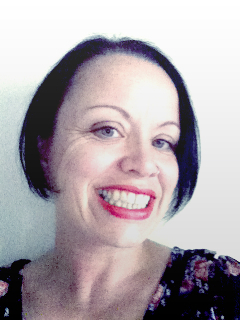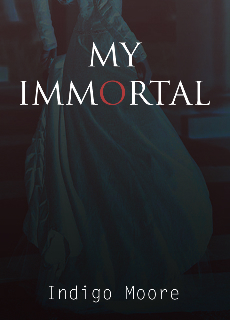In the next interview in our series on self-publishing, Cressida Downing takes a look at other side of the argument; she asks why published author Violet Fenn decided to avoid the self-publishing route.

Violet Fenn has been writing for many years, but she never expected to be published in the genre she is currently in.
Tell me about when you started to write.
I’ve always, always written. I started a fanzine years ago and a few other bits and bobs. Then I started blogging and went down the same route as everyone else – you start 6 blogs in a week – write 2 posts on each – then forget them all. I must have a dozen abandoned blogs hanging around the ether.
Six or seven years ago I decided wanted to write a book. I liked the idea of ‘writing a book’ and I had all these little ideas – too many ideas probably. I never really did anything with it but I did hone the writing down into proper blogging and The Skull.
The Skull?
It's my blog, The Skull Illusion (warning – antique post-mortem photography). It’s been running two years. In a way, it’s a cheat’s blog as it’s more about collating than writing articles. I view it as an online curated collection of post-mortem photography and morbid curiosities. This led to writing on the subject for other people – it’s good to concentrate on a niche area as not too many other people are writing about it. That’s where my current writing practice comes from.
When you blog properly, it develops good habits in you. You have to keep it up, you have a regular audience that you have some responsibility for, and it’s a really good way of learning to write too.
The first incarnation of the current novel started as a writing exercise. I wanted to overcome the terror of putting my writing out in public so started yet another blog and posted it in installments. I wrote it as I put it up. It didn’t turn out to be what I wanted to write exactly but it was great for making me do something every day. In short – the blogging led directly into the writing.
And now you’re a published author?
Yes! In a genre I never expected to write in! Purely for writing practice, I had done a couple of fan fiction pieces (friends were doing it, I thought I’d have a go). I tired of it as a genre, but realised that I could write erotica. That lurked in the background until a friend introduced me to a publisher who was looking to expand their market.
Oleander Press in Cambridge are a small niche bricks and mortar publisher that specialises in historical and niche writing and they fancied tipping into erotica – and they were looking for writers. I sent off a story and sat there and quaked and quaked. I’d never sent anything to a publisher but they got back to me the same day saying they’d love to publish it and would I like to work with them?
They do publish currently only as e-books – apart from one anthology which is available as a paperback. I find that easy, really easy for me – because all I have to do is write the story, email it off, and – allowing for the techy formatting – it’s live within a couple of days. There’s no way that you can do in a hard copy format.
It’s good for the publishers too – they can try out their imprint (Wildheart) and dip their toe in to a new genre for them.

Apologies for asking this – but do they take every author who contacts them?
No, they do operate quality control. They turn down quite a lot. It’s not in their interest to publish substandard texts – whether as ebooks or hard copy.
That to me is part of the point of it. I’m too close to my writing, so obviously I think its ok when I send it off – I know I’m capable of stringing words together – but it’s a very nice safety net. It’s a vote of confidence that actually yes, it is good enough to publish.
Wildheart publish my work, deal with the technology, take a royalty (a small royalty) and I’m listed as being published by them.
Whether you have a publisher or are self-published, Amazon take a slice of your income – it doesn’t reduce it by very much to have a publisher. To me, that difference is worth every penny to have someone else dealing with the publishing side of things.
So what do you have to do as a published author once you’re in print?
Marketing! I don’t have to – my publisher has their own website, and is on Facebook and Twitter. Regardless though, surely it’s in an author’s interest to push their own name out there. Everyone has a constant media presence, so there isn’t an easy way out of it anymore.
You write your erotica under a pseudonym (Indigo Moore), why is that?
It simplifies things hugely. I have no issues with being 'out' as a writer of erotica, but a pseudonym means that Indigo has a dedicated media presence that isn't confused by my work in other genres. Indigo can write things that Violet never would, which is very freeing - a point that has very recently been made by J K Rowling's venture into crime writing under a pen name.
And longer term – is erotica going to be your genre?
Not really, no. My novel is what I want to do long-term. I’m going to take that leap of confidence and see what happens.
I got halfway through the first draft only to realise I was writing the wrong book! I stopped the ‘wrong book,’ which had been five years in the writing, and got started on the ‘right book’ and am already halfway through. It’s flowing much better.
Once it’s finished and I’ve edited it, I will be sending it out to traditional publishers.
Why not try self-publishing?
Seriously – pragmatically – I want to know I’ve got some level of stability behind me and a deal gives me that. I’m not sitting here expecting a 7 figure sum, I do live in the real world – I just want to know that someone has enough confidence in me to back me.
Would you ever consider it?
I would think about it – however, my concern would be that if I tout it around and everyone turns it down – there’s something wrong. If you self-publish because you want to be in charge, that’s brilliant and a valid choice – it gives you great creative control. If you self-publish because everyone else thinks it’s not good enough – you’ve got problems.
I’ve been sitting too long in a room trusting in my self-confidence. I’m taking a leap of faith by writing – and at some point I need someone else to leap with me.
If you found this article useful and you're thinking of self-publishing, you might want to take a look at our section on Considering Self-Publishing.
Comments